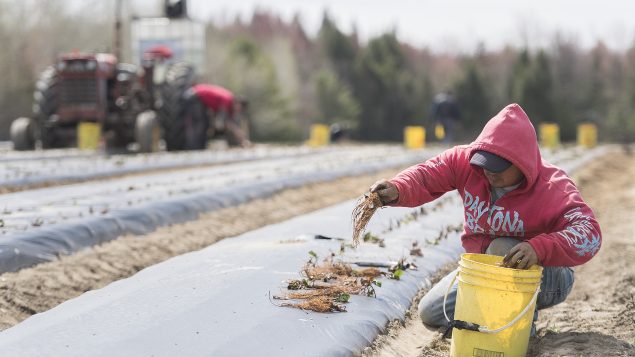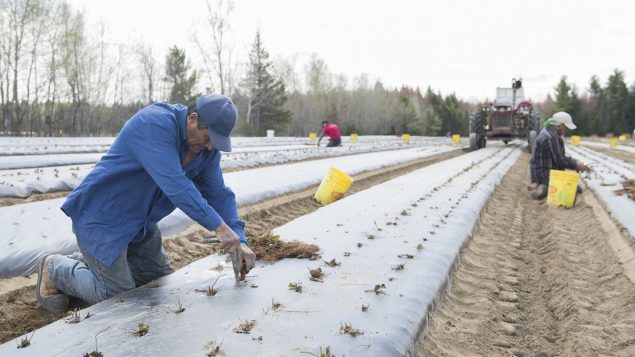With the COVID-19 pandemic impacting almost every sector of Canada’s economy, the federal government is fast-tracking approvals for temporary foreign workers already in the country, to fill labour shortages in critical sectors such as agriculture and health care.
Many temporary workers with employer-specific work permits lost their jobs when large parts of the Canadian economy shut down due to the pandemic. While some have left Canada, others are unable to leave due to international travel restrictions or the reduction in flights available.
Under existing rules, to change jobs they need to apply and wait for a new work permit to be issued before starting to work at their new job.
At the same time, many employers in sectors that provide essential services, such as agriculture, agri-food and health care, find themselves with urgent needs for additional employees.
The new temporary policy is expected to drastically reduce the time it takes for a temporary foreign worker to get a new work permit and start a new job, said officials at Immigration, Refugees and Citizenship Canada (IRCC).
Under the new policy, a foreign worker who is already in Canada and has secured a new job offer, can get approval to start working in their new job, even while their work permit application is being fully processed, cutting the wait time from about 10 weeks or more, down to 10 days or less, IRCC officials said.
“Immigrants, temporary foreign workers and international students are making considerable contributions to Canada’s response to the unprecedented challenge that COVID-19 poses,” Immigration Minister Marco Mendicino said in a news release.
“We know and value their efforts and sacrifices to keep Canadians healthy and ensure the delivery of critical goods and services.”
‘Integral part of the Canadian workforce’

A nurse works on her phone while visiting with park residents outside Sanctuary Ministries in Toronto on Monday, May 4, 2020. (Frank Gunn/THE CANADIAN PRESS)
Employment Minister Carla Qualtrough said temporary foreign workers are an “integral part of the Canadian workforce and Canada’s COVID-19 response.”
“They are helping us meet urgent labour needs, to ensure our food security and deliver essential goods and services,” Qualtrough said.
“While there will always be jobs for Canadians who choose to work in these sectors, these changes help support our economy by ensuring that temporary foreign workers already here can contribute during these extraordinary times.”
To be eligible for the new program, foreign workers must:
- be in Canada with valid status
- have an employer-specific work permit or have been working under a work permit exemption
- have submitted an application for a new work permit with a valid job offer under either the Temporary Foreign Worker Program or the International Mobility Program
An employer hiring a temporary foreign worker still needs to have, or obtain, a labour market impact assessment (LMIA) from Employment and Social Development Canada.
In 2019, about 190,000 employer-specific work permits were issued to foreign nationals, according to federal statistics.
With farmers and fish processors worried about filling jobs during the pandemic, the federal government already has announced $50 million to help finance the added costs of covering temporary foreign workers while they comply with a mandatory 14-day quarantine period upon their arrival in Canada.

A temporary foreign worker from Mexico plants strawberries on a farm in Mirabel, Que., Wednesday, May 6, 2020, as the COVID-19 pandemic continues in Canada and around the world. (Graham Hughes/THE CANADIAN PRESS)
Agriculture Minister Marie-Claude Bibeau said when COVID struck, the federal government immediately got to work, with the top three countries of origin for foreign primary agricultural and food production workers: Mexico, Jamaica and Guatemala.
Nearly 22,000 agricultural workers arrived in Canada by the end of April, compared with about 25,500 at the end of April in 2019, Bibeau said.
The federal government also increased the maximum duration of employment under LMIAs from one to two years for low-wage workers and removed the minimum recruitment requirements for the next six months, for workers in agriculture and food processing, Bibeau said.







For reasons beyond our control, and for an undetermined period of time, our comment section is now closed. However, our social networks remain open to your contributions.